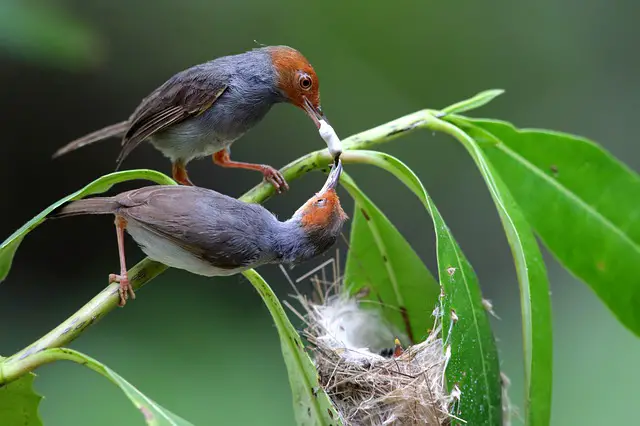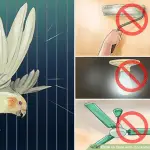According to the 2018 survey made by the National Pet Owners Association, there are about 7.9 million families that are taking care of 20.3 million birds. This surprising numbers are data just from the United States alone! Knowing this, there is definitely a need for pet-sitting services for birds to help them every time their owners have emergencies, trips, or vacations where they cannot bring their pets. Here are details on how to become a great and professional bird-sitter.
How to Become A Bird Sitter
To become a bird sitter, there are no formal education requirements. But, a bird sitter must have the skills and the know-how about handling birds physically. They must also be aware of the different behavior of birds when they are in new environments, as well as if they have objects that they enjoy chewing on.
There are bird sitters that find particular species to specialize on, but there are bird sitters that can care for different types of birds. It would help to have prior experience of caring for pet birds, and most likely own one for your own. It is also essential that a bird sitter can commit to varying schedules depending on the need per individual.
Other important skills to consider are attention to detail, as well as being able to communicate well with pets and their owners.
Know to Ask The Right Questions
Before you sign an agreement to take care of a stranger’s pet bird, you should set a proper discussion with your prospective client. In your meeting, you should seek the answers to the following things:
- What is the bird’s name? How old is it? What is its gender?
- Does the bird have a regular veterinarian, and would you allow me to bring the bird to the vet in case something bad happens?
- What diseases did the bird use to have? What diseases had the bird been screened for? Are there any symptoms I should watch out for?
- What time does the bird usually wake up? What time does the bird usually go to sleep?
- What are the bathing habits of your bird? Do I need to provide it with a deep dish, a misting spray, or a shower perch?
- In case something goes wrong, who is the emergency contact person?
- Do you allow the bird to fly freely throughout your home? – If this is the case, you should also ask the bird owner to temporarily cage the bird before you visit their home, so there will be no chance for the bird to escape or fly out. Being in a confined space will also allow the bird sitter to develop opportunities for interaction with the pet bird, but with comfort for you both.
- Do the birds have specific food and treat that they particularly enjoy? Does the owner allow guests or bird sitters like you to give their birds a treat or two? This is because using some treats can be a great way to earn the trust of the bird, for a harmonious sitting session.
- Is their pet bird educated about different tricks, particularly the command for “up”? – This command is commonly used by bird owners all over the world to assist their pet bird in perching on their arm or on their shoulders. This also makes removing them from their birdcage much easier.
- Had their pet bird ever attacked or bitten someone? When was the last time the bird did exhibit this behavior? – This is an important question because this will help you, as a bird sitter estimate and have a gauge on the temperament of the bird that you will care for.
Best Practices to Observe While Bird Sitting
- In the home of your client and the bird, you should always maintain a soft, calm, and soothing voice. Birds often vocalize in the same energies as their environments, so the bird will just mimic your high volume if you get too loud and noisy. Additionally, some birds practice some special vocalizations when they feel they are in danger. This is normally very loud, and this is not a great first impression to do when sitting a bird.
- Be careful when approaching the cage. You should not place your fingers through the bars of your birdcage. As much as you are unfamiliar with the bird, the bird is unfamiliar with you, too. Even the friendliest bird can still be tempted to bite you if this individual feels that you are breaching its territory.
- In approaching a bird for the first time, you should talk to the bird first so that you can observe how well it can react to you. If the bird looks calm and relaxed, you can try to provide them with some delicious treats to get them to trust you. Depending on the training and behavior of the bird, you can place the treat on their food bowl, or you can hand-feed them.
- Remember that some birds only bond to one specific human alone. If that is the case, the bird will surely be hesitant in interacting with you, and they will never appreciate your attempts to handle them. This is not something that you should take personally. But, to make it clear to the pet’s owner, you should explain to them that you cannot handle the bird and the only thing that you can do is to provide the bird with food and water, to clean the bird cage, and talking to the bird from a distance.
- If the bird that was assigned to you enjoys having flying all over the house, estimate how comfortable you are with this type of behavior. Remember, the bird might be obedient in returning to their cage if their owner commands, but the bird might not be obedient towards you.
- When you try to get the bird out of its enclosure, make sure that the room is fully secured. As birds are clever creatures, and can, unfortunately, be very opportunistic, a single opening of a cage door can be a chance for the pet bird to escape and fly out.
- How do you secure a room for a bird? First, check out any household items as this might just lead you to lose the bird. All the windows should be tightly locked, as well as all the doors. If there are other pets in the house, make sure that they are stored in a different room. You should also unplug all electronic devices, especially any electric fans.
- Instruct the owner of the bird to properly set up the bird’s cage in a way that allows quick access to refill and remove food and water bowls. This is so there will be no worry about providing the best type of care to the bird regardless of its feelings for you as well as their temperament.
- If you handle the bird, you should never forget to wash your hands in warm and soapy water after. You should also change your clothes. There are infections that can spread quickly between birds, and you would never want to contaminate your household.


